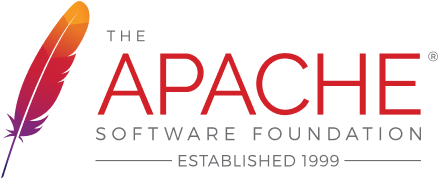


Do you want to have an email deleted from an Apache mailing list? Then read on...
Public forums, which include all developer and user mailing lists, wikis, and issue reporting systems, are essential to The Apache Software Foundation (ASF). We strive to do our work in public forums in a spirit of transparency and openness. They are our preferred means of communication. Users should understand that communications they send to such forums may be available to the public for eternity.
Maintaining a publicly-accessible archive of those communications is a vital component of the services we provide to our community. They serve as both a public historical record and a searchable repository of our activities and decisions.
On very rare occasions it becomes necessary to make modifications to our own archives. This document describes the circumstances and procedures under which such modifications may happen. Note, though, that many others not affiliated with the ASF provide archives of our public forums as well. This document pertains solely to the archives made directly available through hosts within the apache.org domain.
All communication sent to our public forums - the public mailing lists, wikis, issue reporting systems and any other ASF contribution mechanism - is deemed to be published by the sender of that communication and made public without conditions. Any disclaimers that may be attached to said communication that describe it as private or non-redistributable are self-contradictory and thus null and void. The Apache Software Foundation is not responsible for removing or otherwise concealing your communication after you caused it to become public.
We generally only consider requests to edit or excise material contained in the archive when the sender of the archived communication makes the request. We consider each case on its individual merit, and weigh each proposed modification against the damage done by altering the historical record. We deny many more requests than we approve in order to protect the integrity of the archives.
We usually edit or remove information only in the event of an inadvertent disclosure of confidential information, such as a social security number. A sender's contact information (name, email address, phone number, etc.) does not fall into that category. We most certainly do not edit the archives as a means of reducing one's exposure to spam.
Even if we do modify the archives, numerous third parties independently archive nearly all of our public mailing lists. If you are seeking to remove an email, for example, you would to request each of those third parties to edit their archives, and they may or may not honor such requests. In other words, even if we were convinced to edit our archives, that wouldn't be very effective.
Be aware that by requesting a modification to the archives you are drawing attention to whatever information you wish to be kept private. In most circumstances, by far the most effective course of action is to change anything that genuinely needs to be changed (such as passwords) and move on.
To clarify, the following examples do not qualify as exceptional circumstances, and do not merit editing the ASF archives:
Posting from a wrong email address.
Posting login names and passwords.
Posting IP addresses, machine names and/or URLs not intended for public use.
Note: Editing the archives is an extremely rare event. We deny most requests. Please read the above policy and make sure that you qualify for an exception before proceeding.
The sender of the archived communication should submit a request to
privacy@apache.org. Each request should include the following:
A detailed justification, clearly indicating the requisite sense of urgency.
A precise description of the material to be edited. Please include specific urls wherever possible.
A statement indicating an understanding of this policy.
We handle each request confidentially and with appropriate care.
Keep in mind that The Apache Software Foundation is a volunteer organization. We do our best to handle each request as quickly as we can.